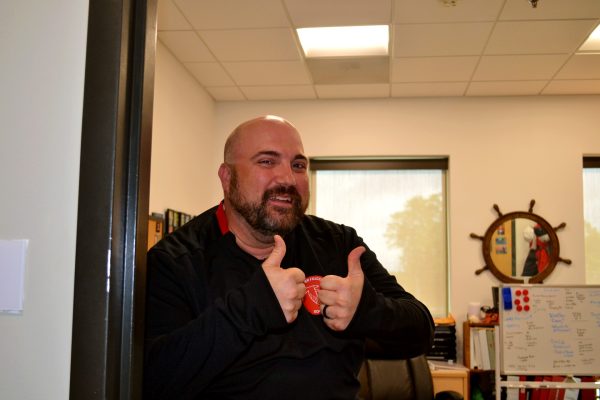Celebrating Women: Dr. Catherine Croft
Q. What is your take on women’s rights?
I think the world has made much progress but still has a long way to go. Whereas the U.S. is more progressive on women’s rights than many other countries, there are still institutionalized forms of gender discrimination, as well as subtle forms of bias that women encounter daily. Unfortunately, glass ceilings still exist that women need to crack to reach the upper levels of their professions.
Q. Do you think it is important to teach feminism in schools? Why or why not?
It is extremely important to teach feminism in schools, although I realize that the word “feminism” has acquired a bad reputation to older generations. Every student should be taught the value and importance of women in the world, and females should be taught how to express themselves confidently. I think we can all agree on the core values of women’s rights, even though some political groups dismiss feminists as wild and crazy. Teaching students their rights gives them the power to fight for them as they grow older.
Q. Do you ever feel you have been looked down upon for being a woman or treated differently (especially in the school systems)? Any examples?
I have experienced many instances of this in the scientific world, in my former career as a neurobiologist. Whereas women are highly encouraged to enter scientific careers and I had wonderful treatment during my undergraduate years at Duke and while I earned my Ph.D. in Neuroscience, discrimination reared its ugly head when I ventured into the upper levels of my profession. For instance, upon graduation from the University of Virginia with my Ph.D., a faculty panel giving advice on careers recommended that females in our program should not have children if they wished to be serious about their scientific career. In my postdoctoral lab at the National Institutes of Health (NIH), one of my fellow researchers encountered health difficulties that required bed-rest during her last two months of pregnancy. Upon hearing the news, the head of my lab ( a male) marched angrily through the lab and declared to everyone, “That is the last time that I hire a woman!” Another lab that I worked in did not provide maternity leave. I was only permitted to take two weeks of leave after my second child was born. Upon my return, they told me that I could not use any of the empty offices for breast pumping, recommending that I drive to the nearby Tyson’s mall and use the family bathroom. This was not feasible, as pumping is needed every few hours. Therefore, I had to give up trying to give my baby her mother’s milk.
In the gaming world, gender discrimination is much more overt. The field is largely composed of white males who are generally unwelcoming to other populations trying to enter the hobby. When I demo my board games at conferences, people ask to speak to my boss. When I approach game booths, they assume I am a salesperson. Once when I approached a booth at GenCon to pitch one of my games, one of the female employees shouted out loudly to all who could hear, “Thank God!! A female game designer!” When I enter most board game shops, I am usually the only female there. At open game nights, I have had men recommend that I try a simpler game because the one I picked is too complicated. They often suggest that perhaps they could teach games to me – sometimes even games that I helped playtest during the design phase. The list goes on and on…
In the school setting, I am happy to say that I have been warmly welcomed and respected for who I am. I feel safe and loved at Fauquier High School, and everyone is generally supportive of my background. There have only been a handful of instances when people have been visibly surprised when searching for “Dr. Croft” only to find me. (One student in my third year here – “You’re Dr. Croft? But you’re a girl!”) This is a rare occurrence, though, so I am grateful to find such a loving community.
Thanks for reading The Falconer. We're happy to provide you with award-winning student journalism since 1963, free from bias, conflicts of interest, and paywalls. We're able to continue with the generous support of our local community. If you're able, please consider making a donation. Any amount is incredibly helpful and allows us to pursue new and exciting opportunities.




